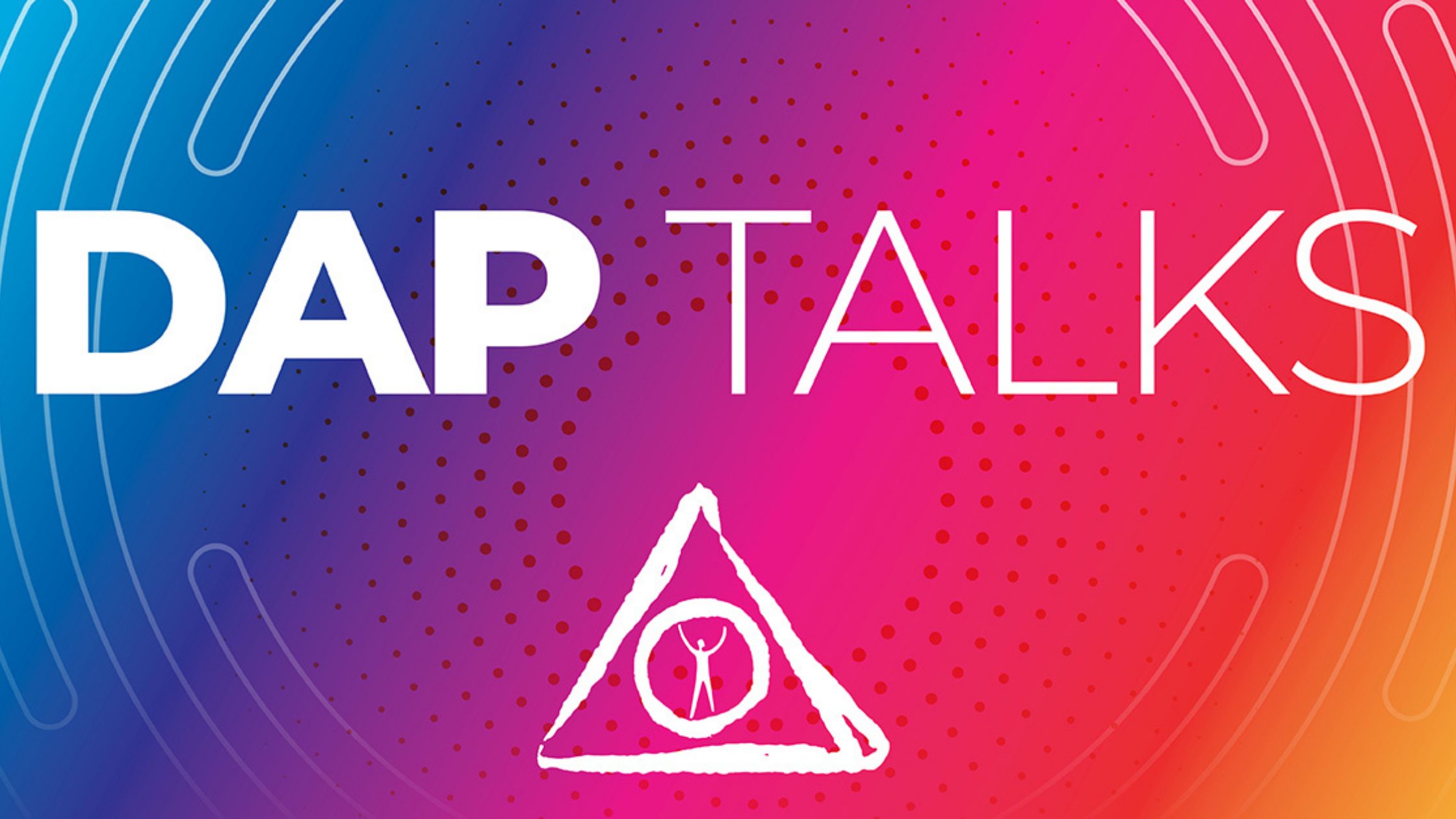
Media Contact:
Jack Bunting
[email protected]
(760) 323-2118
With #MyPrideStory, DAP Talks Joins Apple Podcasts
(Palm Springs, CA) November 4, 2020 -- DAP Health is calling on everyone to share their personal Pride story on social media with the hashtag #MyPrideStory, in a move to harness the power of life-affirming stories as 2020 celebrations go virtual. DAP CEO David Brinkman shared his personal Pride story in a first-ever DAP Talks on Apple Podcasts. Also available on RSS feed, this format change will allow DAP Health to reach the largest audience possible. Click here to listen to David’s DAP Talks on Apple Podcasts or RSS feed.
“Reaching more people who need us by using the platforms they prefer is helping us ease LGBTQ+ isolation caused by COVID,” says David Brinkman, CEO. “DAP Talks on Apple Podcasts will engage listeners in their own health and well-being on the world's largest platform for podcast discovery and listening.”
Going virtual for Pride this year is best for the public health, but it also means many LGBTQ+ people are losing an important annual tradition for self-affirmation, publicly celebrating a holiday created to champion LGBTQ+ self-acceptance, social progress and history.
“We can still enjoy and share stories of hope and resilience, keeping the spirit of Pride alive this year for ourselves and others,” Brinkman said. “I started by sharing my personal story of my first Pride celebration, and it brought back a lot of other special memories that remind me of why I am so committed to this work.”
Improving LGBTQ+ Self-Acceptance
For LGBTQ+ people, COVID has increased depression and anxiety in a population already disproportionately suffering compared to heterosexuals (NAMI). This year they cannot go to a Pride parade or festival, but they still need affirmation and connection. Using digital tools, DAP Health wants to help everyone to champion LGBTQ+ self-acceptance, social progress, and history.
According to The TREVOR Project, as a result of family rejection, discrimination, criminalization and a host of other factors, LGBTQ+ youth represent as much as 40% of the homeless youth population. Of that population, studies indicate that as many as 60% are likely to attempt suicide.
About DAP Health
DAP Health (DAP) is a humanitarian healthcare organization in Palm Springs, CA offering a combination of medical, dental, counseling, social services, support groups, alternative therapies, in-house pharmacy and lab, and other health and wellness services. DAP’s sexual health clinic, The DOCK, offers STI testing and treatment, Pre-Exposure Prophylaxis (PrEP), Post-Exposure Prophylaxis (PEP), and HIV and HCV testing. DAP’s Get Tested Coachella Valley campaign, the nation’s first region-wide free HIV testing and access to care initiative, was recognized by the White House for helping to bring about an AIDS-free future. DAP has earned a “Four Star” rating from Charity Navigator for the twelfth consecutive year – landing DAP in the top 6% of nonprofits rated. The distinction recognizes that we exceed industry standards in terms of our financial health, accountability, and transparency.
Visit www.desertaidsproject.org to learn more.
###








